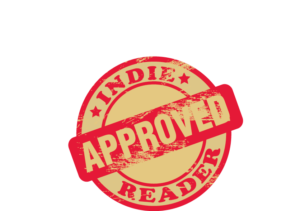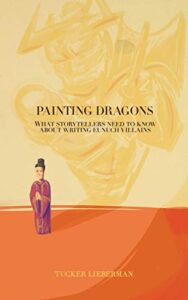
Ten Past Noon: Focus and Fate at Forty received a 4+ star review, making it an IndieReader Approved title.
Following find an interview with author Tucker Lieberman.
What is the name of the book and when was it published?
Ten Past Noon: Focus and Fate at Forty was published in February 2020.
What’s the book’s first line?
The introduction, in which I discuss how and why I wrote the book, begins: “For nearly eighty years, Eunuchryhas endured in five dozen boxes, housed in a building made of limestone and sandstone.” The first chapter begins: “It bubbled up from the unconscious: genderless, ageless, made of the stories we project upon it.” The book is nonfiction, but as this line suggests, the style is influenced by fiction and poetry, too.
What’s the book about? Give us the “pitch”.
A privileged New York man produced thousands of handwritten pages, never published them, and died by suicide. In exploring the mystery of his life and death, I discuss the importance of ethical values, academic study, clear writing, and honest confrontation with existential questions.
What inspired you to write the book? A particular person? An event?
I once hoped to write my own book on eunuchs: worldwide, throughout history, and in myth and symbol. When I discovered that someone else had left behind an unfinished manuscript on the same subject, my interest gradually shifted toward interpreting and resurrecting his material, and then toward finding out who he was. I explain my motivation and inspiration more thoroughly in my book.
What’s the main reason someone should really read this book?
The biographical narrative is set in early 20th-century New York, it features highlights from railroad history, and it reflects on gender deviance and racism. People should grab it if they’re interested in any of those topics. It’s also about how one faces middle age without having completed a major work of art or meaningful project. It existentially needles and advises.
What’s the most distinctive thing about the main character? Who-real or fictional-would you say the character reminds you of?
As I wrote a biography, I suppose I can answer this question, even though my book is nonfiction: My biographical subject reminds me a bit of Alan Turing. I don’t know for certain that my subject was castrated nor that he was at all oppressed by his government, but he lived in the same era as Turing, looked similar to him, and died by suicide around the same age. They were both intensely focused on their cognitive puzzles, although those puzzles were of different types.
If they made your book into a movie, who would you like to see play the main character(s)?
Benedict Cumberbatch played Alan Turing in the film “The Imitation Game” in 2014, and his portrayal of that personality type seems the right approach for my biographical subject, too. Cumberbatch also had a supporting role in the war film “1917,” a year in which my subject was a teenager, so he has acted stories of the right historical era. I’d hire him. I’ll wait for him to call me, though.
When did you first decide to become an author?
I’ve been writing seriously for self-expression since my early teens. I majored in philosophy and got a postgraduate degree in journalism. Since then, I’ve published over a thousand articles online, but it took me until my late 30s to pull together my first book-length works because those ideas are complex.
Is this the first book you’ve written?
In 2018, I wrote Painting Dragons, literary criticism about the trope of fictional eunuch villains. I’ve also contributed to and helped pull together anthologies.
What do you do for work when you’re not writing?
I worked for an investment company for 11 years as a software designer and tester.
How much time do you generally spend on your writing?
If my hands aren’t on the keyboard or holding someone else’s book, I’m probably out for a walk to process my thoughts. I am always thinking. For the past couple years, I’ve been doing this full-time.
Would you go traditional if a publisher came calling? If so, why?
Yes. Publishing a book is a huge amount of work: editing, typesetting, cover design, formal advertising, social media shout-outs, paperback distribution, and events. As a self-published author, I have to assemble and pay my own team, or else I have to learn to do some of these tasks myself. If a company wanted to take on this effort in support of my work, by all means I would be grateful.
Is there something in particular that motivates you (fame? fortune?)
Most people want to change someone else’s life and make the world a better place; those are lofty goals that my book indeed aims at. I invested a huge amount of time and money into this book, and I have no expectations that I could ever possibly earn it back. This book is meant as a gift to others. I believe it will help someone. I just hope the right people will find it.
In terms of what I get out of it selfishly: Writing the book forced me to draw conclusions about my own perspectives and to solve problems and questions that are important to me. It was a process of personal growth. I feel even better when I imagine that someone might actually read it because, if I’m being read, then I’m being heard. Moreover, I tend to ruminate, and my thoughts become repetitive and sometimes intrusive. When I write a book and set it free into the world like a balloon, I release myself to think about something else.
Which book do you wish you could have written?
Haruki Murakami’s Colorless Tsukuru Tazaki and His Years of Pilgrimage. It’s about a teenager who doesn’t understand why his friends suddenly stop talking to him. He ruminates himself almost to death. Cracking the puzzle is a matter of coming to understand himself as well as the other people.

